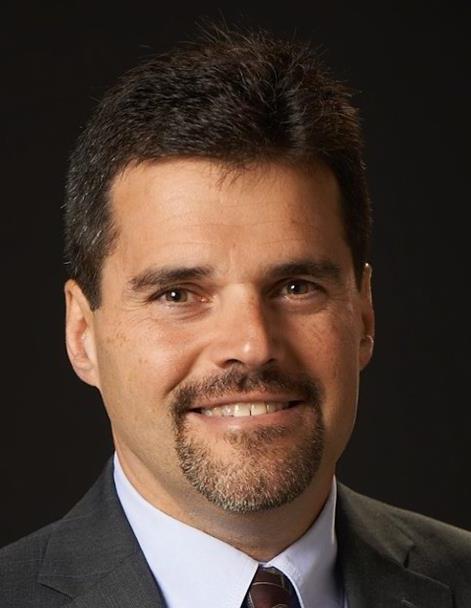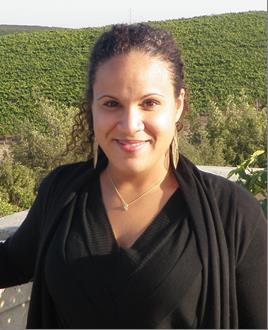New Brunswick, NJ (October 28, 2015) – Today, a team of researchers and Trenton stakeholders released a comprehensive analysis of the conditions and trends in Trenton neighborhoods. Conducted in partnership with the City of Trenton and the city’s civic leadership, the study promises to become a key guide for revitalization strategies in Trenton for many years to come.
The report, entitled Laying the Foundation for Strong Neighborhoods in Trenton, NJ, is the product of a collaboration by a team that includes New Jersey Community Capital (NJCC), the Center for Community Progress (CCP), Isles, Inc., and the Joseph C. Cornwall Center for Metropolitan Studies at Rutgers University. The study is an important follow up to a 2014 citywide inventory of vacant property conducted on behalf of the Trenton Neighborhood Restoration Campaign by Isles, Inc.
The report is available here, and will be linked to www.restoringtrenton.org, a web site that makes citywide property and neighborhood data available to community residents, city government, nonprofit organizations and other stakeholders. The data underlying the report, as well as detailed neighborhood summaries, will be accessible on www.restoringtrenton.org.
“We’ve been excited to participate in this project,” said Eric Jackson, Mayor of Trenton. “We’re a city of diverse neighborhoods, each with its own opportunities and challenges. This is the first time we’ve had this kind of data to help us design the best strategies for each part of our city.”
The study team looked at eight indicators of neighborhood condition in each of Trenton’s 55 neighborhoods and subareas. These indicators include vacant properties, homeownership rate, median sales price, percentage of home sales to investors, mortgage foreclosure filings, tax delinquency, percentage of tax liens bought by investors, and violent crime.
By comparing individual indicators, as well as the total picture, the analysis brings vividly to light the key strengths and challenges of each of the city’s neighborhoods, and the variation between them. According to Alan Mallach, principal author of the report, “For a small city, Trenton has a lot of different neighborhoods, and each one has different needs and opportunities. If the city is going to make the most of its assets, it has to make its strategies fit the particular conditions of each neighborhood.”
The report examines both current conditions and recent trends in Trenton and its neighborhoods, and lays out potential strategic options available to city government and other stakeholders to address the challenges facing the city, focusing in particular on strategies to deal with vacant properties, improve rental housing, and stabilize homeownership. “This report and the database can serve a variety of functions,” said Diane Sterner, Community Strategies Advisor for NJCC. “We look forward to working with the city, its organizations and its residents to help plan strategies and initiatives, target resources, and evaluate ongoing revitalization efforts.”
Laying the Foundation for Strong Neighborhoods in Trenton was made possible by grants from the Princeton Area Community Foundation (PACF), the Garfield Foundation, and Thomas Edison State College.
About the Partners
New Jersey Community Capital (NJCC)
NJCC is a nonprofit community development financial institution (CDFI) that transforms at-risk communities through strategic investments of capital and knowledge. NJCC invests in affordable housing, community facilities, and economic development ventures that strengthen neighborhoods, improve education, and increase jobs, ultimately providing greater opportunities for low-income populations. Since inception, NJCC has facilitated the investment of over $500 million into 800 high-impact projects across the state, supporting the creation and preservation of 12,900 education seats, 8,200 housing units, 6,100 early care slots, and 6,100 jobs. For more information, please visit www.newjerseycommunitycapital.org.
Center for Community Progress
Founded in 2010, the Center for Community Progress is a national nonprofit organization dedicated to ensuring that communities have the vision, knowledge, and systems to transform blighted, vacant, and other problem properties into assets supporting neighborhood vitality. The Center serves as the leading national resource for local, state and federal policies and best practices that address the full cycle of property revitalization, including blight prevention through the acquisition and maintenance of problem properties and their productive reuse. For more information, please visit www.communityprogress.net.
Joseph C. Cornwall Center for Metropolitan Studies
The Cornwall Center encourages and conducts relevant research and hosts learning opportunities all aimed at improving the cultural, social and economic development of the community, city and region in which the Center resides. The Center’s mission is to research and analyze complex issues facing urban areas, primarily metropolitan Newark and northern New Jersey, and to ultimately generate solutions to those challenges.
Isles, Inc.
Founded in 1981, Isles, Inc. is a community development and environmental organization in Trenton, New Jersey. With a mission to foster self-reliant families and healthy, sustainable communities, Isles designs and develops effective services that support this mission and share what they learn with others who can make a difference. Beyond its central New Jersey base, Isles works to influence policy and practices that support healthy, self-help agendas. For more information, visit www.isles.org.

 Steven P. Goodell is a partner at Herbert Van Ness Cayci & Goodell, concentrating his practice in the areas of municipal law, litigation in all courts, zoning and land use. Mr. Goodell received his A.B. from Bucknell University, with honors, and his J.D. from the University of Texas School of Law. He is admitted to the bars of New Jersey and Pennsylvania, the District Court for the District of New Jersey, the United States Court of Appeals for the Third Circuit and the United States Supreme Court. Mr. Goodell, a former Mercer County assistant prosecutor, is active in various community and professional organizations. He is also a trustee of the New Jersey Institute of Local Government Attorneys. Mr. Goodell served as Chair of the Isles Board of Trustees from January 2010 to December 2013.
Steven P. Goodell is a partner at Herbert Van Ness Cayci & Goodell, concentrating his practice in the areas of municipal law, litigation in all courts, zoning and land use. Mr. Goodell received his A.B. from Bucknell University, with honors, and his J.D. from the University of Texas School of Law. He is admitted to the bars of New Jersey and Pennsylvania, the District Court for the District of New Jersey, the United States Court of Appeals for the Third Circuit and the United States Supreme Court. Mr. Goodell, a former Mercer County assistant prosecutor, is active in various community and professional organizations. He is also a trustee of the New Jersey Institute of Local Government Attorneys. Mr. Goodell served as Chair of the Isles Board of Trustees from January 2010 to December 2013. Ronald B. Stark is an accounting and finance professional who has held executive level positions with several area companies, including NRG Energy, Pegasus Communications, and Berlitz International, and began his career as an auditor with Deloitte & Touche. He most recently served as NRG’s VP, Chief Accounting Officer with responsibility for directing all financial accounting and reporting activities company-wide. Ron is a certified public accountant and received his Bachelor’s degree in Accounting from Hofstra University and his J.D. from Rutgers School of Law in Newark.
Ronald B. Stark is an accounting and finance professional who has held executive level positions with several area companies, including NRG Energy, Pegasus Communications, and Berlitz International, and began his career as an auditor with Deloitte & Touche. He most recently served as NRG’s VP, Chief Accounting Officer with responsibility for directing all financial accounting and reporting activities company-wide. Ron is a certified public accountant and received his Bachelor’s degree in Accounting from Hofstra University and his J.D. from Rutgers School of Law in Newark. Jacquelyn León, MPH is a Program Analyst at the New Jersey Department of Education. In this role, Ms. León works to catalogue “what works” in the area of school preparedness. She provides direct technical assistance and training to equip school administrators with the knowledge and tools to develop a high-quality emergency operations plan and the skills to exercise their plans to assess readiness during an emergency. Prior to joining the Department, Ms. León consulted with various agencies focused on positive youth development. Ms. León is a resident of Trenton.
Jacquelyn León, MPH is a Program Analyst at the New Jersey Department of Education. In this role, Ms. León works to catalogue “what works” in the area of school preparedness. She provides direct technical assistance and training to equip school administrators with the knowledge and tools to develop a high-quality emergency operations plan and the skills to exercise their plans to assess readiness during an emergency. Prior to joining the Department, Ms. León consulted with various agencies focused on positive youth development. Ms. León is a resident of Trenton.